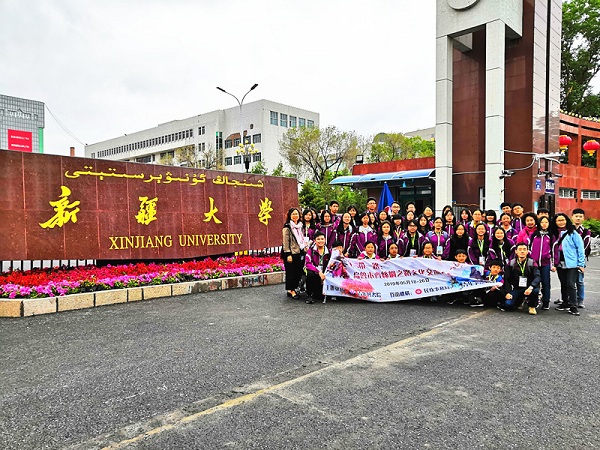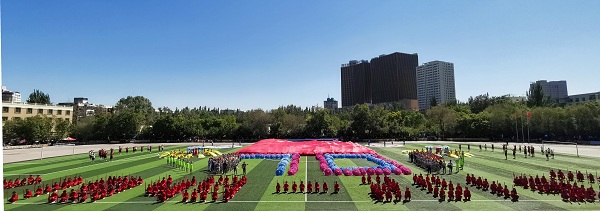Xinjiang University

The predecessor of Xinjiang University, the Xinjiang Russian Law and Politics School, was founded in 1924. The establishment of the school has been regarded as the prelude to Xinjiang's higher education system. In January 1935, it was changed into Xinjiang College.
Xinjiang University has 24 colleges, one graduate school, one independent college, two teaching and research departments, and four teaching practice centers. Currently it has 36,996 students in various classes, including 21,508 undergraduate students, 6,103 postgraduates, 493 doctoral students, 347 international students and 8,008 adult undergraduates.

Disciplines
The university has nine disciplines – economics, law, literature, history, science, engineering, management, art and philosophy – covering the main areas of high-level professional training and scientific research. The school has been included in the national-level outstanding engineers and the outstanding legal personnel training program, and is one of the Ministry of Education’s undergraduate professional reform pilot universities.
There are two national key disciplines, one national key cultivation discipline, six autonomous regional peak disciplines and seven autonomous region plateau disciplines at the university, with two disciplines (chemistry and engineering) entering the top 1% of ESI global rankings.
Xinjiang University has 14 doctoral degrees in authorized first-level disciplines, 33 master's degree programs, one postdoctoral research station, 18 master's degree programs, 94 undergraduate programs, including 10 national specialties, 18 autonomous regions lack talents and 12 autonomous region professions.

Academic achievements
In 2018, the amount of funds granted for various scientific research projects in Xinjiang University reached 19.84 million yuan ($2.87 million). Applications for 83 national natural science funds were approved, including two key projects, one local youth talent training project and five major projects, with funding of 44.02 million yuan. It also received funding of 7.25 million yuan for its 28 national social science funds, including three major projects and two key projects.
In 2018, academicians at Xinjiang University published 1,090 academic papers, acquired 77 patents and published 15 books.
Education programs for foreigners
Xinjiang University has been accepting foreign students since 1985. In January 2008, the International Cultural Exchange College was established to specialize in the education and management of international students.
The college offers a bachelor's degree in Chinese language and a master's degree in Chinese international education. It also undertakes pre-university education for undergraduates, postgraduates and doctoral students.
The college is equipped with digital speech rooms, multimedia classrooms, a traditional Chinese culture exhibition hall, a Silk Road culture exhibition hall, a calligraphy and painting room, a music room and a book reading room, as well as HSK domestic network test sites.
The college organizes various forms of extracurricular cultural activities, and holds an annual international students' opening ceremony, entrance education, sports meetings, a welcome party, a language corner and a people's tree planting festival, as well as celebrations of traditional Chinese festivals.
The college also conducts exchange programs, professional development projects, short-term summer camps and winter camps to meet the needs of international students from different countries.
The school has established educational exchanges and cooperation with more than 160 universities and research institutes in more than 30 countries and regions such as the United States and Russia. It has signed educational exchange and scientific research cooperation agreements with more than 60 foreign universities and educational institutions in Kyrgyzstan and Russia, including three Confucius Institutes.
MOST POPULAR
- 1 China Daily's 'Shopping in China' platform appeals to intl audiences
- 2 China updates Catalogue of Encouraged Industries for Foreign Investment
- 3 Policies concerning expats, foreign enterprises in December 2025
- 4 China becomes the world's fourth manufacturing power
- 5 China ascends global higher education ranking







